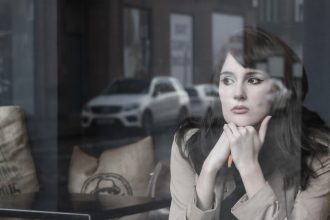McDonald Dixon, one of the most prolific and multi-talented figures in the Caribbean artistic world, celebrated his 70th birthday last week in his birthplace of St Lucia. To mark a lifetime’s achievement, The Missing Slate’s poetry editor Jamie Osborn talked to McDonald Dixon about his inspirations, his connections with his home, his understanding of nature, and his vision for the future.
To start with what might be called your roots, your inspirations – a lot of your work draws on nature and the landscapes of the Caribbean, and even when your poems are set in the past in other countries, there is still an intense evocation of the physical environment (for example your poem “Ancestors†traces the journeys of your Irish, Indian and African ancestors through the clay “that was once my fleshâ€). How do you see your relation, and art’s relation, to nature? In your poem “Beloved Countryâ€, you imply that nature itself speaks through poetry: “This conch will blare across the land in verse.†Is nature an artist itself?
My roots are diverse. First, my mother’s father was a Barbadian sign painter, and her mother was Saint Lucian. My father was born on the Balmain Estate at Couva in Trinidad, the son of an Indian mother, Ramdoularie (“Beloved of Godâ€), and an Irish father, George Dixon. Already you can spot the complexities. Which do I choose? I am an amalgam. Genuine West Indian.
My work draws on everything that touches me, particularly the human condition. Nature and Man are one. “Dust thou art, to dust thou shalt returnâ€. I am not very religious but was brought up in the Christian faith, first as an Anglican and then a convert to Roman Catholicism. Art is a manifestation of human creativity. It shapes our disciplines. Nature is the overarching godhead that is sometimes Jesus, Allah, Lord Siva, Buddha – all manifestations of one being: the great architect of the universe.
I noticed that often in your poems description of nature coincides with quite harsh religious imagery. You talk of villages being “nailed / Like Christ to this hillside†by the “sharp nails of rainâ€. Could you comment on this? What attitude to religion do you think is expressed in your poems? In your work God’s power seems to be reflected in the power of natural forces, and I wonder whether there is something inaccessible and potentially violent about both these forms of power?
As you may be able to deduce, I am not conventional where religion is concerned, but I believe in a divine creator. Nature is more than just simply an artistic self. It is the complete being, both animate and inanimate.
The harshness that you see comes from my utter distaste from what man has done to religion. Look at what the Catholics and Protestants have done to Ireland. Look what the Pilgrim Fathers did to the native American. Look at what the Jews are doing to the Palestinians, look at what is happening in the Middle East. Where is that sense of goodness and holiness? It is all power and greed.
I believe in a God, call it nature if you will, if this is how it manifests itself in my work. The awesome power of nature is seen every year in my part of the world in the fearsome hurricanes that visit us. The earthquake in Haiti, and the tsunami that strode across the Indian Ocean are a few examples in recent memory.
You explore extensively your country’s history and your own family’s history, and sometimes the poems in which you do so are addressed directly to your forbears. You also make use of local St Lucian words and Creole. Your friend and fellow poet Derek Walcott has famously explored the tensions between the old world and the new – the old world of history and the old world of European culture, and how these relate to his own situation. Do you feel a similar tension? Has the literature you were taught in school influenced you at all? And whom do you imagine your poems to be ultimately addressing?
You should realize that when I started writing there was nothing called West Indian Literature. Derek and I went to the same secondary school. He is about 14 years ahead, so I did not meet him there. However the teachers and more importantly the fare from which they taught were the same. I was fed on a diet of English Literature and did not discover the moderns until I was 14. The first Caribbean poet I read by accident was Derek when I dusted off ‘25 Poems’ from the school library shelf.
The literature I was taught in school helped me to mobilize the English language to be used as a tool for expression. Prior to discovering Walcott, all I had known were English poets. I sometimes feel compartmentalized. Part shelved in an English tongue and at other times liberated by my language of the street. My poems address mankind: although secret at times, I tend not to be insular, and speak to the Caribbean man, emerging.





